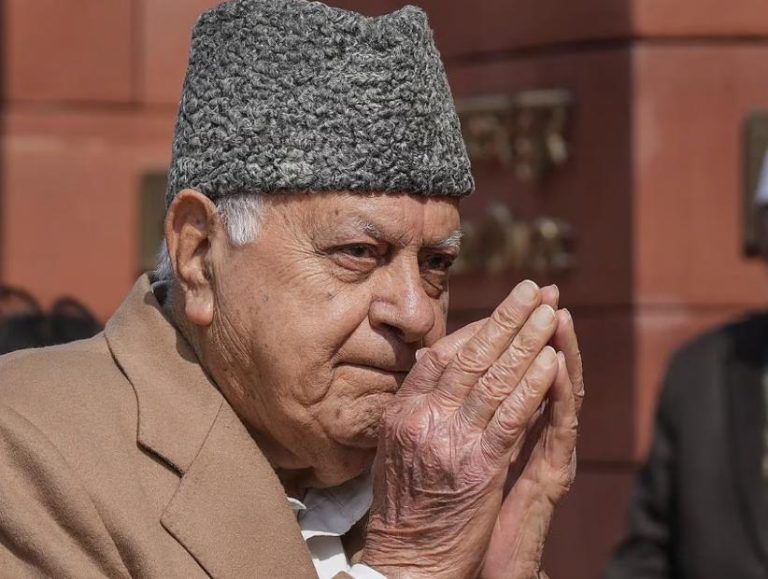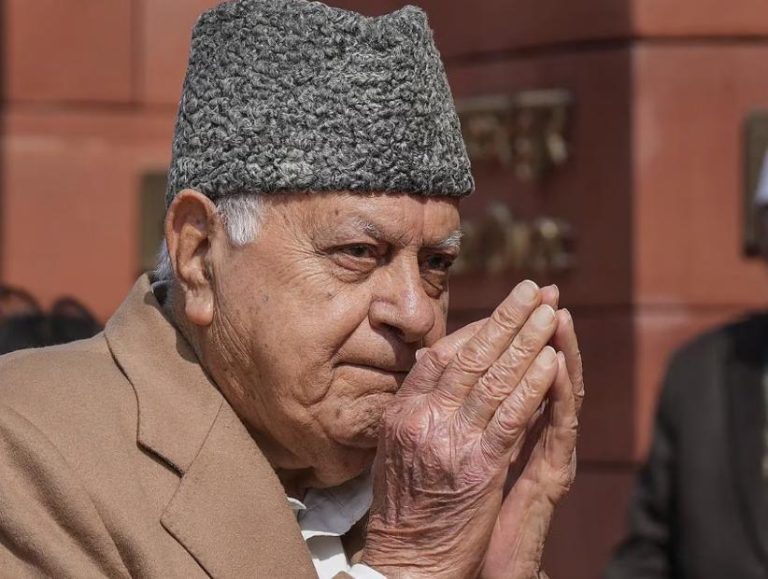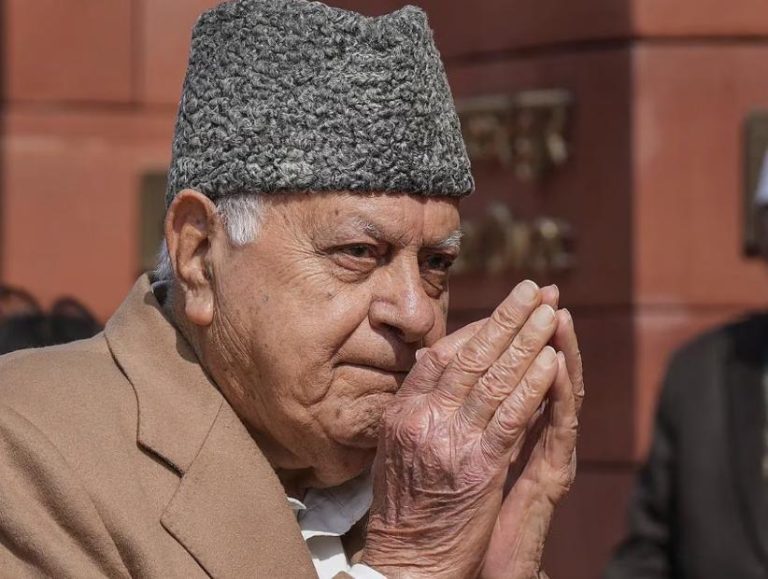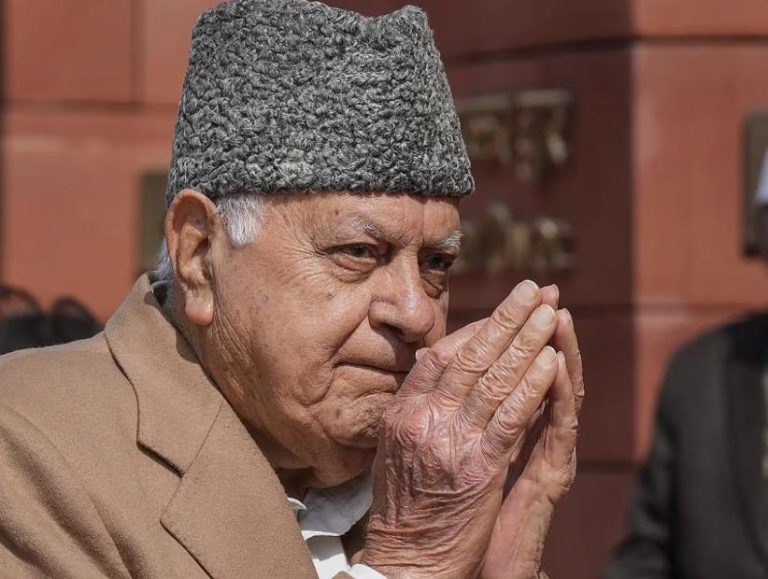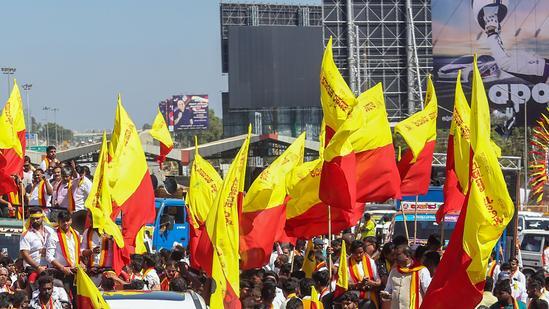
Karnataka Rakshana Vedike holds protest amid Kannada-Marathi row
The ongoing disputes between pro-Kannada and pro-Marathi groups in Karnataka have taken a new turn with the Karnataka Rakshana Vedike (KRV) holding a massive protest in Belagavi, a city with a significant Marathi-speaking population. The protest, which was held on February 24, was aimed at expressing the organization’s strong opposition to the alleged encroachment of Marathi language and culture in the region.
The unrest escalated after a KSRTC bus conductor was beaten up in Belagavi on February 21 for allegedly not speaking in Marathi. The incident sparked widespread outrage, with many Kannada-speaking people calling for action against those responsible. The KRV has been at the forefront of the protests, demanding that the state government take stern measures to prevent the spread of Marathi language and culture in Karnataka.
The protest, which was held in front of the Belagavi railway station, saw hundreds of KRV leaders and workers gathering to express their solidarity with the Kannada language and culture. The protesters carried banners and placards with slogans like “Jai Karnataka” and “Save Kannada”, and also chanted anti-Marathi slogans.
The police were present in large numbers to maintain law and order, and detained KRV leader Praveen Shetty at the protest site to prevent any untoward incident. The detention of Shetty, who is a prominent figure in the KRV, sparked further outrage among the protesters, who accused the police of being biased towards the Marathi-speaking community.
The KRV has been demanding that the state government take action against those who are allegedly promoting Marathi language and culture in Karnataka. The organization has also been protesting against the alleged encroachment of Marathi-speaking people in the region, and has demanded that the government provide jobs and other benefits only to Kannada-speaking people.
The protests have been met with fierce resistance from the Marathi-speaking community, who have accused the KRV of being communal and anti-Marathi. The Marathi-speaking people have been demanding equal rights and opportunities, and have been protesting against the alleged discrimination faced by them in the region.
The Karnataka government has been trying to pacify both sides, but the situation remains tense. The government has promised to take stern action against those who are involved in the disputes, and has also set up a committee to look into the matter.
The dispute between the Kannada-speaking and Marathi-speaking communities is not new, and has been simmering for years. However, the recent incidents have escalated the situation, and the government is under pressure to take concrete action to resolve the issue.
The KRV has been a powerful force in Karnataka politics, and has been instrumental in shaping the state’s politics. The organization has been known for its strong opposition to the Marathi-speaking community, and has often used violent means to express its discontent.
The recent protests have also sparked concerns about the safety of Marathi-speaking people in Karnataka. Many Marathi-speaking people have reported being harassed and intimidated by the KRV and its supporters, and have accused the police of being biased towards the Kannada-speaking community.
The dispute has also raised questions about the cultural identity of Karnataka. The state has a rich cultural heritage, and the Kannada language and culture are an integral part of it. However, the Marathi language and culture are also an important part of the region’s cultural landscape, and many people have accused the KRV of trying to suppress them.
In conclusion, the Karnataka Rakshana Vedike’s protest in Belagavi is a symptom of a deeper issue that has been simmering in the state for years. The dispute between the Kannada-speaking and Marathi-speaking communities is complex and multifaceted, and will require a nuanced and thoughtful approach to resolve.
